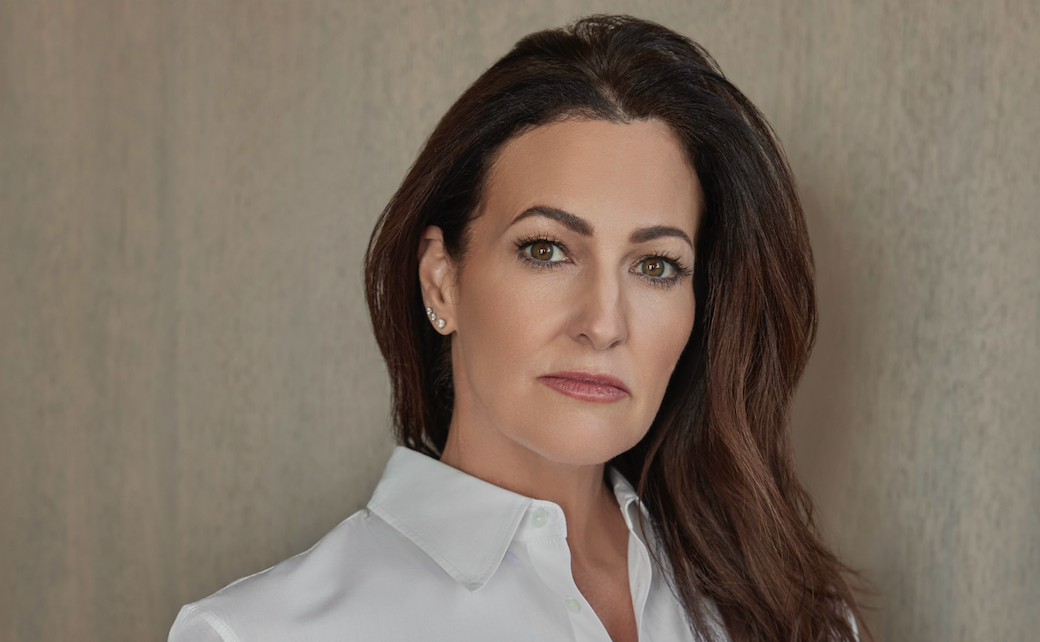Growing up in Jupiter, Florida, Nicole Hollis always saw the world differently than most. “I have dyslexia, and the way that my brain works is very visual—from a young age, I could just see things that other people weren’t seeing,” the designer tells host Dennis Scully on the latest episode of The Business of Home Podcast. “Now that I know more about neurodiversity and can advocate for myself, I think it is a superpower.”
Hollis took that knack for creativity to Palm Beach Community College, where she studied graphic design before transferring to the Fashion Institute of Technology in New York. There, she studied interior design while gaining real-world experience working full-time for an architecture firm. In 1998, she dropped out and moved to California, deciding she had gained the skills she needed to make it big, and landed jobs designing W Hotels and working for designer Howard Backen. Armed with those experiences, she started her own San Francisco–based firm in 2003. “Back then, there was no Instagram, so really establishing myself took quite a bit of time. You had to remind people who you are,” she says. “Showing up at events, I would ask architects, contractors and builders if I could have lunch with them, if I could introduce myself, talk about the work that I do, so it was really just pounding the pavement.”
Hollis has always been focused on slow-and-steady growth. “I knew that the way to have a competitive edge was to be able to not only design beautiful spaces, but deliver the best service out there. I didn’t want to grow super fast,” she says. “I knew that reputation was all you really have, so the last thing you want is to take a job and not be able to deliver the best service on time and on budget.”
The most monumental change came when her husband, Lewis Heathcoate, joined the firm as CEO. Hollis quickly discovered that having a partner on the business end—one who isn’t focused on the design—allowed her to devote her full attention to clients and projects. With that division of labor in place, growth came much easier; today, the firm fluctuates between 80 and 100 employees, and makes regular appearances on Elle Decor’s A-List and the AD100.
Elsewhere in the episode, Hollis discusses what inspired her new book, Artistry of Home, why residential projects are more lucrative for her firm than commercial work, and why AI is an incredible industry tool when used properly.
Crucial insight: Hollis’s message to young designers is to gain experience working under other firms—to learn not only about the industry, but also about themselves and what environment they thrive in. “A lot of designers come out of school and say, ‘I’m going to start my own company,’ and they just don’t have the experience that they should have,” she explains. “I found that a lot of people discovered that they are not principal material; they’re a really good number two. They love getting the work done. They love managing the projects and the people, but are not comfortable presenting ideas to a client or being the face of a firm. It’s really [about] knowing that about yourself.”
Key quote: “You have so much coming at you at all times, and I think I’ve learned most of it is just noise. I’m going to shift that aside and really just reduce how much comes at me. [There are] so many opportunities, lots of things I could be doing, but I need to pace myself, and it’s OK to say no. That’s hard, especially for anyone starting or owning their own firm. You always want to take more opportunities, but working smarter [rather] than harder is what I’m going for.”
This episode is sponsored by Loloi and Rowe. Listen to the show below. If you like what you hear, subscribe on Apple Podcasts or Spotify.
The Thursday Show
BOH executive editor Fred Nicolaus and host Dennis Scully discuss the biggest news in the industry, including the ongoing controversy over quartz countertops, why college students are embracing luxury design for their dorms, and how brown became the color of wealth. Later, stylist Mieke ten Have joins the show to talk about her new book.
This episode is sponsored by Hartmann&Forbes and Chelsea House. Listen to the show below. If you like what you hear, subscribe on Apple Podcasts or Spotify.





























